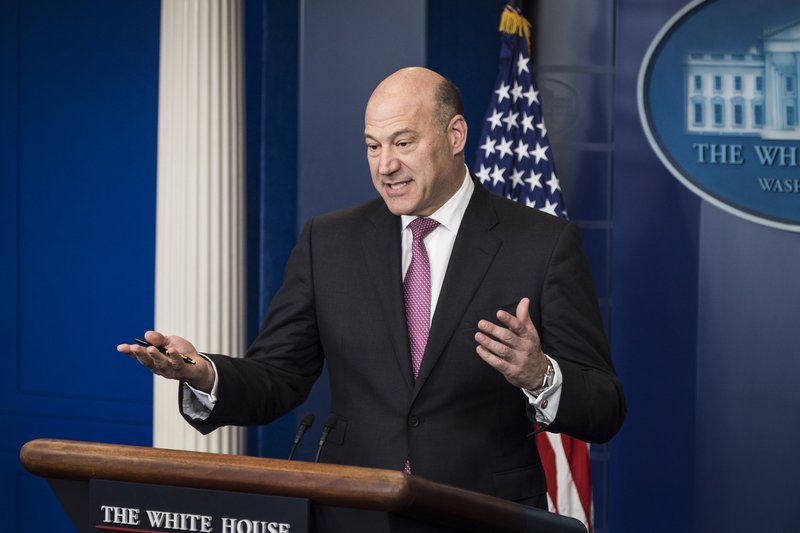There was never much danger that Gary Cohn was going to dethrone Alexander Hamilton from the position of "most revered presidential economic adviser." When he was, for a time, up for the job of chairing the Federal Reserve, Bloomberg Businessweek said that would have been like "a bulldog guiding an institution of eggheads." That, as well as anything, gives you a sense of Cohn's personality.
Before he came to Washington, Cohn was a Goldman Sachs trader who rose through the ranks to become president of that august financial institution, and his manner reflected that background: blunt, glib, more than a little arrogant. His most notable policy achievement was helping to craft a Republican tax bill that made some genuinely salutary attacks on entrenched tax preferences such as the deductibility of state and local taxes and the mortgage-interest tax exclusion, but paired those laudable reforms with massive cuts to corporate and personal tax rates that the bill's authors didn't bother to pay for. His most famous moment for the public was probably the time he claimed that the tax bill would spur corporate investment, only to be refuted by a roomful of CEOs.
How many wonks wept to hear that he had resigned from the administration? Maybe a few more than you might think. Cohn was a bit of an odd duck as a presidential adviser, and it's hard to call him visionary. But in this very odd administration, he could also be a voice for good policy, particularly on trade.
When a presidential adviser leaves, it's not enough to weigh their failures and successes and tote up the balance. You also have to ask whether someone else could have done better. If Cohn has not had a lot of notable policy achievements, that is in part because the Trump administration has been too understaffed and unfocused to get much done. Its signature legislative achievement was a tax bill that was basically a wish list from congressional Republicans and therefore required relatively little legislative acumen from the White House.
Cohn could have been the reincarnation of Milton Friedman under an overlay of Machiavelli, and he probably still couldn't have made much more impact than he did. So it's hard to fault him for not having more substantial achievements attached to his name. Looking at the fate of so many other high-level administration figures, it seems possible, even likely, that it could have been much worse. And even more likely that it will be when President Donald Trump moves to replace him.
Trump had staffing trouble even before he won the 2016 election; many of the veterans of previous Republican administrations declined to associate themselves with his crude style and populist policies. (Which explains in part how Cohn, a longtime Democrat, ended up in the administration.) But now that we're in the second year of the administration, the prospect of working for Trump seems less attractive still.
Prospective advisers know that the stump speeches were not an act. The president really is volatile and not very interested in policy, so their jobs are likely to be futile and frustrating. They will also have observed the number of summary departures, the chaos and disloyalty of this White House, and the diminution of the reverence that is usually offered to administration officials by both the corporate sector and the wonk-media industrial complex.
Who is going to want to step into Cohn's rather uncomfortable shoes? Will they be better or worse than Cohn? Don't say "It couldn't be worse"--the universe laughs at such claims. It could always be worse. As Trump's appointments have repeatedly proven.
Editorial on 03/08/2018
